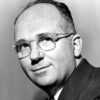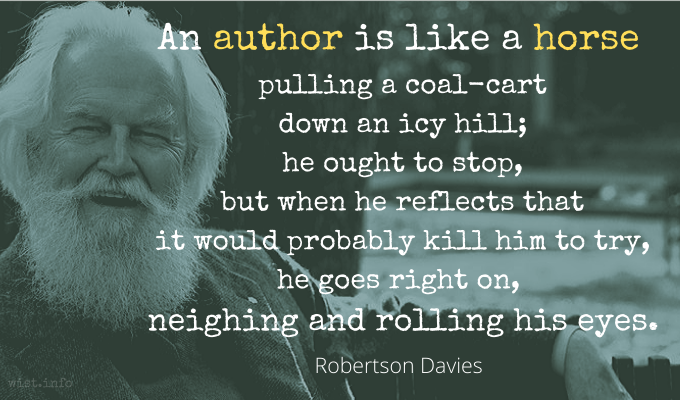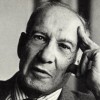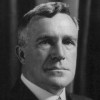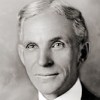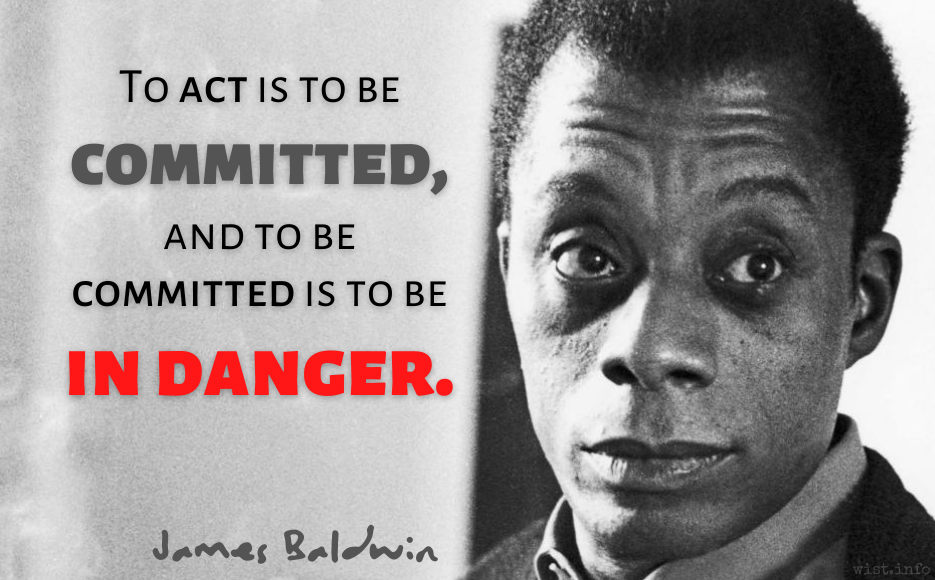EXPERIENCE, n. The wisdom that enables us to recognize as an undesirable old acquaintance the folly that we have already embraced.
Ambrose Bierce (1842-1914?) American writer and journalist
“Experience,” The Cynic’s Word Book (1906)
(Source)
Included in The Devil's Dictionary (1911). Originally published in the "Devil's Dictionary" column in the San Francisco Wasp (1884-06-07).
Quotations about:
commitment
Note not all quotations have been tagged, so Search may find additional quotes on this topic.
I lay it down as a general rule, Harriet, that if a woman doubts as to whether she should accept a man or not, she certainly ought to refuse him. If she can hesitate as to ‘Yes,’ she ought to say ‘No’ directly.
You always pay too much. Particularly for promises. There ain’t no such thing as a bargain promise.
Cormac McCarthy (1933-2023) American novelist, playwright, screenwriter
No Country For Old Men (2005)
(Source)
Children hold us hostage; they represent our commitment to the future.
Barbara Grizzuti Harrison (1934-2002) American journalist, essayist, memoirist
Italian Days, ch. 1 (1989)
(Source)
Character is what emerges from all the little things you were too busy to do yesterday, but did anyway.
Mignon McLaughlin (1913-1983) American journalist and author
The Second Neurotic’s Notebook, ch. 4 (1966)
(Source)
Character consists of what you do on the third and fourth tries.
Do you know the difference between involvement and commitment? Think of ham and eggs. The chicken is involved. The pig is committed.
Martina Navratilova (b. 1956) Czech–American tennis player
Newsweek, “Martina: A Style All Her Own” (6 Sep 1982)
(Source)
The commitment problem has caused many women to mistakenly conclude that men, as a group, have the emotional maturity of hamsters. This is not the case. A hamster is much more capable of making a lasting commitment to a woman, especially if she gives it those little food pellets. Whereas a guy, in a relationship, will consume the pellets of companionship, and he will run on the exercise wheel of lust, but as soon as he senses the door of commitment is about to close and trap him in the wire cage of true intimacy, he’ll squirm out, scamper across the kitchen floor of uncertainty, and hide under the refrigerator of nonreadiness.
Dave Barry (b. 1947) American humorist
The Greatest Invention in the History of Mankind is Beer (2001)
(Source)
The pain of grief is just as much a part of life as the joy of love; it is, perhaps, the price we pay for love, the cost of commitment.
Colin Murray Parkes (b. 1928) British psychiatrist and author
Bereavement: Studies of Grief in Adult Life (1972)
(Source)
Sometimes paraphrased, “Grief is the price we pay for love.”
“The choice is yours: to go or wait.”
“And it is also said,” answered Frodo: “Go not to the Elves for counsel, for they will say both no and yes.”
“Is it indeed?” laughed Gildor. “Elves seldom give unguarded advice, for advice is a dangerous gift, even from the wise to the wise, and all courses may run ill.”
J.R.R. Tolkien (1892-1973) English writer, fabulist, philologist, academic [John Ronald Reuel Tolkien]
The Lord of the Rings, Vol. 1: The Fellowship of the Ring, Book 1, ch. 3 “Three Is Company” (1954)
(Source)
Something must happen — and that explains most human commitments. Something must happen, even loveless slavery, even war or death.
Albert Camus (1913-1960) Algerian-French novelist, essayist, playwright
The Fall [La Chute] (1956) [tr. O’Brien]
(Source)
The uncommitted life is not worth living. We either believe in something or we don’t. Commitment is willingness to stand up and be counted. It is a human must — for young and old, for black and white, for Christian, Moslem and Buddhist. It is skill plus good will. It is a thoughtful decision on the part of an individual to participate passionately in the events of his time. It is the dogged staying-power coupled with the sensible idealism that makes the word go ’round.
I’m not sure there can be loving without commitment, although commitment takes all kinds of forms, and there can be commitment for the moment as well as commitment for all time. The kind that is essential for loving marriages — and love affairs, as well — is a commitment to preserving the essential quality of your partner’s soul, adding to them as a person rather than taking away.
Merle Shain (1935-1989) Canadian journalist and author
Some Men are More Perfect Than Others, ch. 9 “Being True” (1973)
(Source)
I do so dearly believe that no half-heartedness and no worldly fear must turn us aside from following the light unflinchingly.
J.R.R. Tolkien (1892-1973) English writer, fabulist, philologist, academic [John Ronald Reuel Tolkien]
Letter to Edith Bratt (1913)
(Source)
Bratt was Tolkien's fiancee, who was apprehensive about the personal and social ramifications of converting to Catholicism. Tolkien's mother's conversion had been similarly difficult.
O prince, in early youth divinely wise,
Born, the Ulysses of thy age to rise
If to the son the father’s worth descends,
O’er the wide wave success thy ways attends
To tread the walks of death he stood prepared;
And what he greatly thought, he nobly dared.[Τηλέμαχ᾽, οὐδ᾽ ὄπιθεν κακὸς ἔσσεαι οὐδ᾽ ἀνοήμων,
εἰ δή τοι σοῦ πατρὸς ἐνέστακται μένος ἠύ,
οἷος κεῖνος ἔην τελέσαι ἔργον τε ἔπος τε:
οὔ τοι ἔπειθ᾽ ἁλίη ὁδὸς ἔσσεται οὐδ᾽ ἀτέλεστος.]Homer (fl. 7th-8th C. BC) Greek author
The Odyssey [Ὀδύσσεια], Book 2, l. 271ff (2.271) (c. 700 BC) [tr. Pope (1725)]
(Source)
(Source (Greek)). Alternate translations:
Those Wooers well might know, Telemachus,
Thou wilt not ever weak and childish be,
If to thee be instill’d the faculty
Of mind and body that thy father grac’d;
And if, like him, there be in thee enchac’d
Virtue to give words works, and works their end.
This voyage, that to them thou didst commend,
Shall not so quickly, as they idly ween,
Be vain, or giv’n up, for their opposite spleen.
[tr. Chapman (1616)]
If in you you retain the spirit brave
Your father had, to make his word his deed,
Then also the assurance I shall have,
To tell you in your voyage you shall speed.
[tr. Hobbes (1675), l. 257ff]
Telemachus! thou shalt hereafter prove
Nor base, nor poor in talents. If, in truth,
Thou have received from heav’n thy father’s force
Instill’d into thee, and resemblest him
In promptness both of action and of speech,
Thy voyage shall not useless be, or vain.
[tr. Cowper (1792), l. 355ff]
Not base and foolish after all is done
Shalt thou be counted, if the brave old blood
hath from the sire descended to the son.
If thou like him both word and deed make good,
Then were thy journey all in vain withstood.
[tr. Worsley (1861), st. 37]
Tel'mac'! no craven wilt thou be nor dullard;
If but one drop of they sire's good blood be in thee,
Such as he was in feats of deed or word:
So will not be thy journey vain nor bootless!
[tr. Bigge-Wither (1869)]
Telemachus, even hereafter thou shalt not be craven or witless, if indeed thou hast a drop of thy father’s blood and a portion of his spirit; such an one was he to fulfil both word and work. Nor, if this be so, shall thy voyage be vain or unfulfilled.
[tr. Butcher/Lang (1879)]
Telemachus, now shalt thou be no foolish faintheart thing.
If of they father's good-heart in thee hath sprung the seed,
Such a man for the word well-spoken, and fulfilment of the deed,
Not in vain shall be thy faring, nor thy going forth be undone.
[tr. Morris (1887)]
Telemachus, henceforth you shall not be a base man nor a foolish, if in you stirs the brave soul of your father, and you like him can give effect to deed and word. Then shall this voyage not be vain and ineffective.
[tr. Palmer (1891)]
Telemachus, if you are made of the same stuff as your father you will be neither fool nor coward henceforward, for Ulysses never broke his word nor left his work half done. If, then, you take after him, your voyage will not be fruitless.
[tr. Butler (1898)]
Telemachus, neither hereafter shalt thou be a base man or a witless, if aught of thy father's goodly spirit has been instilled into thee, such a man was he to fulfil both deed and word. So then shall this journey of thine be neither vain nor unfulfilled.
[tr. Murray (1919)]
Telemachus, let not your courage and resource fail you now. In your father deed and word notably marched together to their deliberate end. If your body holds a trace of his temper it will suffice to make this effort of yours neither bootless nor aimless.
[tr. Lawrence (1932)]
Today has proved you, Telemachus, neither a coward nor a fool, nor destined to be such, if we are right in thinking that your father’s manly vigour has descended to his son -- and what a man he was in action and debate! No fear, then, that this journey of yours will end in farce or failure.
[tr. Rieu (1946)]
You'll never be fainthearted or a fool,
Telémakhos, if you have your father's spirit;
he finished what he cared to say,
and what he took in hand he brought to pass.
The sea routes will yield their distances
to his true son, Penélopê's true son.
[tr. Fitzgerald (1961)]
Telemachos, you are to be no thoughtless man, no coward,
if truly the strong force of your father is instilled in you;
such a man he was for accomplishing word and action.
Your journey then will be no vain thing nor go unaccomplished.
[tr. Lattimore (1965)]
Telemachus,
you'll lack neither courage nor sense from this day on,
not if your father's spirit courses through your veins --
now there was a man, I'd say, in words and action both!
So how can your journey end in shipwreck or defeat?
[tr. Fagles (1996)]
You won't turn out to be a fool or a coward,
Telemachus, not if any of Odysseus' spirit
Has been instilled in you. Now there was a man
Who made sure of his words and deeds! Don't worry,
You'll make this journey, and it won't be in vain.
[tr. Lombardo (2000), l. 293ff]
Telemachus, you will not in future prove cowardly or foolish if you have truly inherited your father's strong vigor -- and what a man he was for carrying out his word and deed -- and so your journey will surely not be unfulfilled or in vain.
[tr. Verity (2016)]
Telemachus, you will be brave and thoughtful, if your won father's forcefulness runs through you. How capable he was, in word and deed! Your journey will succeed, if you are his.
[tr. Wilson (2017)]
Telemachus,
in future days you will not be worthless
or a stupid man, if you have in you now
something of your father’s noble spirit.
He’s the sort of man who, in word and deed,
saw things to their conclusion. So for you
this trip will not be in vain or pointless.
[tr. Johnston (2019), l. 364ff]
Beware:
All too often,
We say
What we hear others say.
We think
What we’re told that we think.
We see
What we’re permitted to see.
Worse!
We see what we’re told that we see.
Repetition and pride are the keys to this.
To hear and to see
Even an obvious lie
Again
And again and again
May be to say it,
Almost by reflex
Then to defend it
Because we’ve said it
And at last to embrace it
Because we’ve defended it
And because we cannot admit
That we’ve embraced and defended
An obvious lie.Thus, without thought,
Without intent,
We make
Mere echoes
Of ourselves —
And we say
What we hear others say.Octavia Butler (1947-2006) American writer
Parable of the Talents, ch. 18, epigram (1998)
(Source)
Internally cited to the book's scripture, Earthseed: The Books of the Living,, and to a poem, "Warrior," written by the protagonist's uncle, Marcos Duran.
The best you can do is grant my demand,
Your second-best course to refuse it off-hand;
I welcome assent and denial excuse —
But, Cinna, you neither consent nor refuse.[Primum est ut praestes, si quid te, Cinna, rogabo;
illud deinde sequens, ut cito, Cinna, neges.
Diligo praestantem; no odi, Cinna, negantem:
sed tu nec praestas nec cito, Cinna, negas.]Martial (AD c.39-c.103) Spanish Roman poet, satirist, epigrammatist [Marcus Valerius Martialis]
Epigrams [Epigrammata], Book 7, epigram 43 (7.43) (AD 92) [tr. Pott & Wright (1921)]
(Source)
Source (Latin). Alternate translations:
My iust demands soone graunt or soone deny,
Th' one friendship showes, and th' other curtesie.
But who nor soon doth graunt, nor soone say noe,
Doth not true friendship, nor good manners know.
[tr. Davison (1602)]
The first love, Cinna, is to grant what I
Request; the second quickly to deny.
I love the one, the other hate not I;
But thou nor grant'st, nor quickly dost deny.
[tr. May (1629), 7.42]
The kindest thing of all is to comply;
The next kind thing is quickly to deny:
I love performance; nor denial hate:
Your "Shall I, Shall I?" is the cursed state.
[tr. Hay (1755)]
To grant must doubtless be the primal boon:
The next, my Cinna, to deny me soon.
I love the former, nor the latter hate:
But thou not grantest, and deniest late.
[tr. Elphinston (1782), Book 5, ep. 53]
The greatest favour that you can do me, Cinna, if I ask anything of you, is to give it me; the next, Cinna, to refuse it at once. I love one who gives, Cinna; I do not hate one who refuses; but you, Cinna, neither give nor refuse.
[tr. Bohn's Classical (1859)]
Cinna, grant me my request:
(I warmly hope you'll choose to!)
Or do what I think second best,
In haste refuse to.
Patrons I esteem, nor hate
The man I can't bamboozle:
But you give naught, yet make me wait
A slow refusal.
[tr. Nixon (1911)]
The first thing is that you should hand it over if I ask anything of you, Cinna; the next thing after that, Cinna, is that you should refuse quickly. I like a man who hands over; I do not hate, Cinna, a man who refuses; but you neither hand over, nor do you, Cinna, quickly refuse.
[tr. Ker (1919)]
'Tis best to grant me, Cinna, what I crave;
And next best, Cinna, is refusal straight.
Givers I like: refusal I can brave;
But you don't give -- you only hesitate!
[tr. Duff (1929)]
Cinna, the best thing would be if you lent
Me anything I asked for. The next best
Would be for you to say no then and there.
I like good givers, and I don't resent
A straight refusal of a small request.
It's ditherers like you that I can't bear.
[tr. Michie (1972)]
Best is that you give me anything I ask, Cinna; next best, Cinna, is that you refuse promptly. I like a man who gives; I don't hate a man who refuses, Cinna. But you, Cinna, neither give nor promptly refuse.
[tr. Shackleton Bailey (1993)]
Cinna, to give me what I ask is best;
next best is to refuse without delay.
I love a giver, don't resent refusers.
You neither give nor tell me no straightway.
[tr. McLean (2014)]
People become wedded to their beliefs, because the validity of those beliefs reflects on their competence, commends them as authorities, and rationalizes their mandate to lead. Challenge a person’s beliefs, and you challenge his dignity, standing, and power.
Steven Pinker (b. 1954) Canadian-American cognitive psychologist, linguist, author
The Better Angels of Our Nature, ch. 4 (2011)
(Source)
Let me tell you the secret of such so-called successes as there have been in my life, and here I believe I give you really good advice. It was to burn my boats and demolish my bridges behind me. Then one loses no time in looking behind, when one should have quite enough to do in looking ahead — then there is no chance for you or your men but forward. You have to do or die!
Fridtjof Nansen (1861-1930) Norwegian explorer, scientist, diplomat, humanitarian
Speech, St Andrews University (3 Nov 1926)
(Source)
Translated in his Adventure, and Other Papers (1927).
In the great crisis of the war, God brought us face to face with the mighty truth, that we must lose our own freedom or grant it to the slave. In the extremity of our distress, we called upon the black man to help us save the Republic; and, amid the very thunders of battle, we made a covenant with him, sealed both with his blood and with ours, and witnessed by Jehovah, that, when the nation was redeemed, he should be free, and share with us its glories and its blessings. The Omniscient Witness will appear in judgment against us if we do not fulfill that covenant.
James A. Garfield (1831-1881) US President (1881), lawyer, lay preacher, educator
“Suffrage and Safety,” speech, Ravenna, Ohio (4 Jul 1865)
(Source)
Dearer is love than life, and fame than gold;
But dearer than them both, your faith once plighted hold.Edmund Spenser (c. 1552-1599) English poet
The Faerie Queene, Book 5, Canto 11, st. 63 (1589-96)
(Source)
Any experience deeply felt makes some men better and some men worse. When it has ended, they share nothing but the recollection of a commitment in which each was tested and to some degree found wanting. They were not alike when they began, and they were not alike when they finished. […] The consequences of the journey change the voyager so much more than the embarking or the arrival.
Murray Kempton (1917-1997) American journalist.
Part of Our Time: Some Ruins & Monuments of the Thirties, “A Prelude” (1955)
(Source)
Love makes you go all in. Love makes you voluntarily stupid. Love robs you of the humor you use to protect yourself and leaves you speechless. Love makes your soul crawl out from its hiding place. And then it strips you down, and leaves you fully nude for all to see.
Zora Neale Hurston (1891-1960) American writer, folklorist, anthropologist
(Attributed)
This was originally cited here (without link to a source) as from Hurston's Their Eyes Were Watching God, ch. 13 (1937). Per the comment below, I dug deeper to find an online copy of the book, and discovered the quotation was not there. The closest bits were in the final words of ch. 13:
He drifted off into sleep and Janie looked down on him and felt a self-crushing love. So her soul crawled out from its hiding place.
I cannot find any other citation for it, no work of Hurston that includes it (or any other fractions of it), and only one online book (beyond books of uncited quotations) that includes this full passage (and finishes it off with "... fully nude for all to see, / That's why it's so downright terrifying, / Falsely Yours, Zora Neale Hurston").
Because of that, I am changing the citation to a more ambiguous "(Attributed)". If anyone has more information, I'd be happy to update this entry.
Historians have a word for Germans who joined the Nazi party, not because they hated Jews, but out of a hope for restored patriotism, or a sense of economic anxiety, or a hope to preserve their religious values, or dislike of their opponents, or raw political opportunism, or convenience, or ignorance, or greed.
That word is “Nazi.” Nobody cares about their motives any more.
They joined what they joined. They lent their support and their moral approval. And, in so doing, they bound themselves to everything that came after. Who cares any more what particular knot they used in the binding?
Andrew R. Moxon (contemp.) American writer, critic [a.k.a. Julius Goat]
Blogspot (16 Jan 2017)
(Source)
Frequently mis-attributed to Twitter, where Moxxon also posts under his @JuliusGoat handle. The original Julius Goat Blogspot site is no longer online.
Never strike a king unless you are sure you shall kill him.
Ralph Waldo Emerson (1803-1882) American essayist, lecturer, poet
Journal (1843-09)
(Source)
In addition to the noted source, see also here. However, according to the reliable Ralph Keyes, the quotation is spurious. Keyes also suggests an inspiration from the 17th Century English proverb, "Whosoever draws his sword against the prince must throw the scabbard away."
A variant, "When you strike at a king you must kill him," is attributed to Emerson by Oliver Wendell Holmes, Jr., in Max Lerner, The Mind and Faith of Justice Holmes (1943).
Take a book, the poorest one written, but read it with the passion that it is the only book you will read — ultimately you will read everything out of it, that is, as much as there was in yourself, and you could never get more out of reading, even if you read the best of books.
The old saying holds. Owe your banker £1000 and you are at his mercy; owe him £1 million and the position is reversed.
To live bravely by convictions from which the free peoples of the world can take heart, the American people must put their faith in long-range policies — political, economic, and military — programs that will not be heated and cooled with the brightening and waning of tensions. The United States has matured to world leadership; it is time we steered by the stars, not by the lights of each passing ship.
My dad had once told me that the secret to a happy life was never to start something with a girl unless you were willing to follow wherever it leads. It’s the best piece of advice he’s ever given me and probably the reason I was born.
Never threaten, because a threat is a promise to pay that it isn’t always convenient to meet, but if you don’t make it good it hurts your credit. Save a threat till you’re ready to act, and then you won’t need it.
George Horace Lorimer (1867-1937) American journalist, author, magazine editor
Letters from a Self-Made Merchant to His Son, ch. 15 (1901)
(Source)
Always appoint an hour at which you’ll see a man, and if he’s late a minute don’t bother with him. A fellow who can be late when his own interests are at stake is pretty sure to be when yours are.
George Horace Lorimer (1867-1937) American journalist, author, magazine editor
Old Gorgon Graham: More Letters from a Self-Made Merchant to His Son, ch. 10 (1903)
(Source)
Be careful of your word, even in keeping the most trifling appointment. But do not blame another for a failure of that kind till you have heard his excuse.
James Burgh (1714-1775) British politician and writer
The Dignity of Human Nature, Sec. 5 “Miscellaneous Thoughts on Prudence in Conversation” (1754)
(Source)
Frank O’Connor, the Irish writer, tells in one of his books how, as a boy, he and his friends would make their way across the countryside, and when they came to an orchard wall that seemed too high and too doubtful to try and too difficult to permit their voyage to continue, they took off their hats and tossed them over the wall — and then they had no choice but to follow them. This Nation has tossed its cap over the wall of space, and we have no choice but to follow it.
He who does not punish evil commends it to be done.
Leonardo da Vinci (1452-1519) Italian artist, engineer, scientist, polymath
Note-books (1508-1518)
(Source)
In some versions, this is translated as "commands it to be done."
Beyond a certain point there is no return. This point has to be reached.
[Von einem gewissen Punkt an gibt es keine Rückkehr mehr. Dieser Punkt ist zu erreichen.]
Franz Kafka (1883-1924) Czech-Austrian Jewish writer
Notebook, Aphorism #5 [tr. Kaiser and Wilkins]
(Source)
Alt. trans.:
- From a certain point onward there is no longer any turning back. That is the point that must be reached.
- There is a point of no return. This point has to be reached.
Promise little, and do much; so shalt thou have Thanks.
Thomas Fuller (1654-1734) English physician, preacher, aphorist, writer
Introductio ad Prudentiam, Vol. 1, # 111 (1725)
(Source)
Vows made in Storms are forgot in Calms.
Thomas Fuller (1654-1734) English physician, preacher, aphorist, writer
Gnomologia: Adages and Proverbs, #5408 (1732)
(Source)
Promises may get Friends, but ’tis Performances that keep them.
Thomas Fuller (1654-1734) English physician, preacher, aphorist, writer
Gnomologia: Adages and Proverbs, #3957 (1732)
(Source)
We make promises to the extent that we hope, and keep them to the extent that we fear.
[Nous promettons selon nos espérances, et nous tenons selon nos craintes.]
François VI, duc de La Rochefoucauld (1613-1680) French epigrammatist, memoirist, noble
Réflexions ou sentences et maximes morales [Reflections; or Sentences and Moral Maxims], ¶38 (1665-1678) [tr. Kronenberger (1959)]
(Source)
Present from the 1st edition in 1665.
(Source (French)). Alternate translations:
Our Promises are always made with a reflection on our Hopes, and perform'd according to our fears.
[tr. Davies (1669), ¶16]
We promise in proportion to our Hopes,
and we keep in proportion to our Fears
[tr. Stanhope (1694), ¶39]
We promise in proportion to our Hopes, and we keep our Word in proportion to our Fears.
[tr. Stanhope (1706), ¶39]
We promise according to our hopes, and perform according to our fears.
[pub. Donaldson (1783), ¶357; [ed. Lepoittevin-Lacroix (1797); ed. Gowens (1851), ¶39]
We promise according to our hopes; we perform according to our fears.
[ed. Carville (1835), ¶463; tr. Bund/Friswell (1871)]
Promises are measured by hope; performances by fear.
[tr. Heard (1917)]
Our promises are measured by our hopes; our performances by our fears.
[tr. Stevens (1939)]
Our promises are made in hope, and kept in fear.
[tr. FitzGibbon (1957)]
Our promises are made in proportion to our hopes, but kept in proportion to our fears.
[tr. Tancock (1959)]
We make promises according to our hopes, and keep them according to our fears.
[tr. Whichello (2016)]
We are truth-speakers, we men of Gondor. We boast seldom, and then perform, or die in the attempt. Not if I found it on the highway would I take it I said. Even if I were such a man as to desire this thing, and even though I knew not clearly what this thing was when I spoke, still I should take these words as a vow, and be held by them. But I am not such a man. Or I am wise enough to know that there are some perils from which a man must flee.
J.R.R. Tolkien (1892-1973) English writer, fabulist, philologist, academic [John Ronald Reuel Tolkien]
The Lord of the Rings, Vol. 2: The Two Towers, Book 4, ch. 5 “The Window on the West” [Faramir] (1954)
Faramir, rejecting the One Ring when he learns Frodo and Sam have it. Referring to this vow.
“I will take the Ring,” he said, “though I do not know the way.”
J.R.R. Tolkien (1892-1973) English writer, fabulist, philologist, academic [John Ronald Reuel Tolkien]
The Lord of the Rings, Vol. 1: The Fellowship of the Ring, Book 2, ch. 2 “The Council of Elrond” [Frodo] (1954)
(Source)
Accepting the quest to take the One Ring to Mordor and its destruction.
I am not altogether on anybody’s side, because nobody is altogether on my side, if you understand me.
J.R.R. Tolkien (1892-1973) English writer, fabulist, philologist, academic [John Ronald Reuel Tolkien]
The Lord of the Rings, Vol. 2: The Two Towers, Book 3, ch. 4 “Treebeard” [Treebeard] (1954)
(Source)
It is a human inclination to hope things will work out, despite evidence or doubt to the contrary. A successful manager must resist this temptation. This is particularly hard if one has invested much time and energy on a project and thus has come to feel possessive about it. Although it is not easy to admit what a person once thought correct now appears to be wrong, one must discipline himself to face the facts objectively and make the necessary changes — regardless of the consequences to himself. The man in charge must personally set the example in this respect. He must be able, in effect, to “kill his own child” if necessary and must require his subordinates to do likewise.
Hyman Rickover (1900-1986) US Navy Admiral
Quoted in T. Rockwell, The Rickover Effect, Part 3, ch. 2, epigraph (1992)
(Source)
To act is to be committed, and to be committed is to be in danger.
James Baldwin (1924-1987) American novelist, playwright, activist
“My Dungeon Shook,” The Fire Next Time (1963)
(Source)






